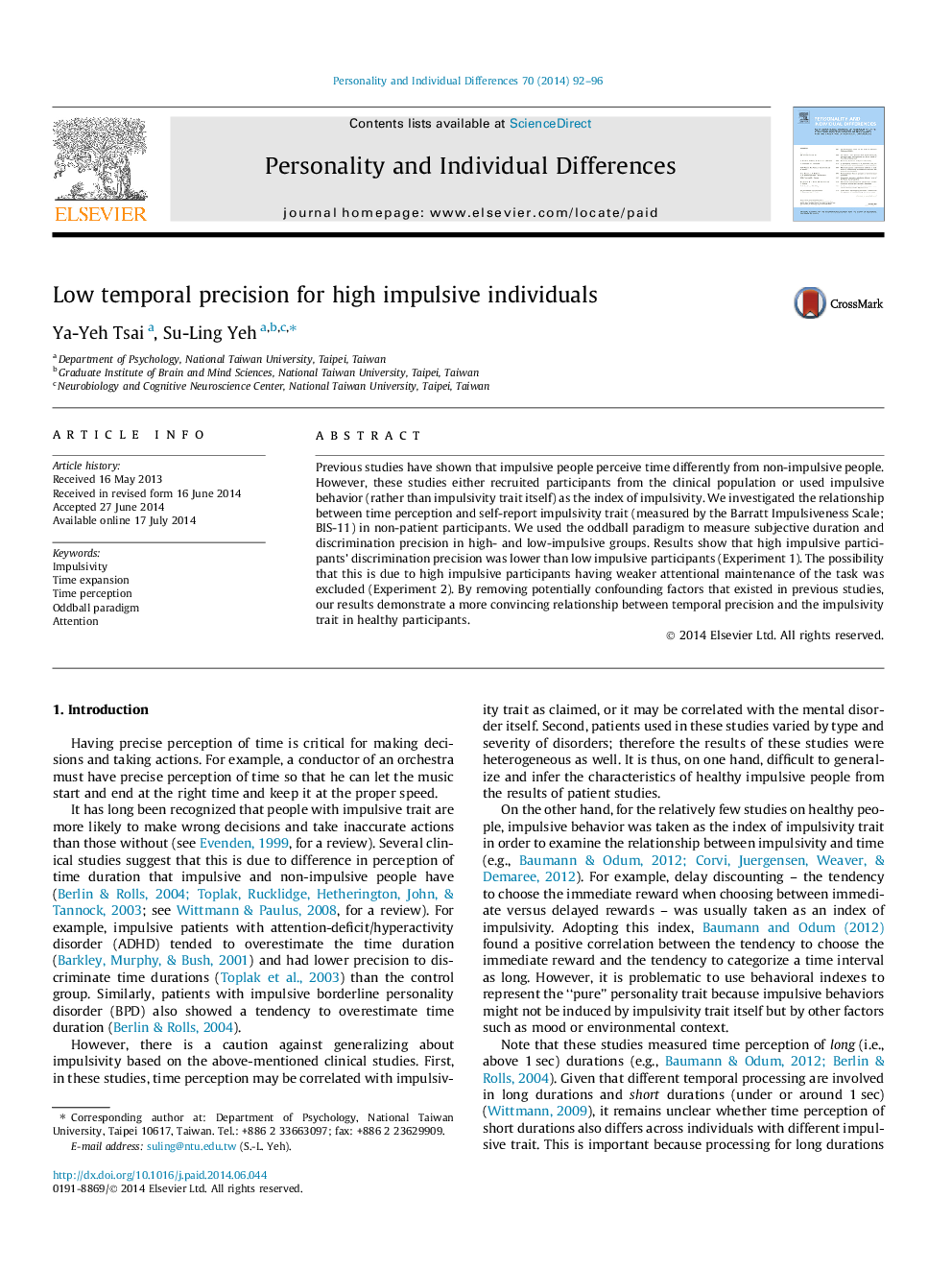| Article ID | Journal | Published Year | Pages | File Type |
|---|---|---|---|---|
| 890320 | Personality and Individual Differences | 2014 | 5 Pages |
•We examined the relationship between time perception and impulsivity.•We measured subjective duration and discrimination precision by oddball paradigm.•High impulsive participants’ discrimination precision was lower.•The possibility of remaining less attention on duration judgment was excluded.
Previous studies have shown that impulsive people perceive time differently from non-impulsive people. However, these studies either recruited participants from the clinical population or used impulsive behavior (rather than impulsivity trait itself) as the index of impulsivity. We investigated the relationship between time perception and self-report impulsivity trait (measured by the Barratt Impulsiveness Scale; BIS-11) in non-patient participants. We used the oddball paradigm to measure subjective duration and discrimination precision in high- and low-impulsive groups. Results show that high impulsive participants’ discrimination precision was lower than low impulsive participants (Experiment 1). The possibility that this is due to high impulsive participants having weaker attentional maintenance of the task was excluded (Experiment 2). By removing potentially confounding factors that existed in previous studies, our results demonstrate a more convincing relationship between temporal precision and the impulsivity trait in healthy participants.
